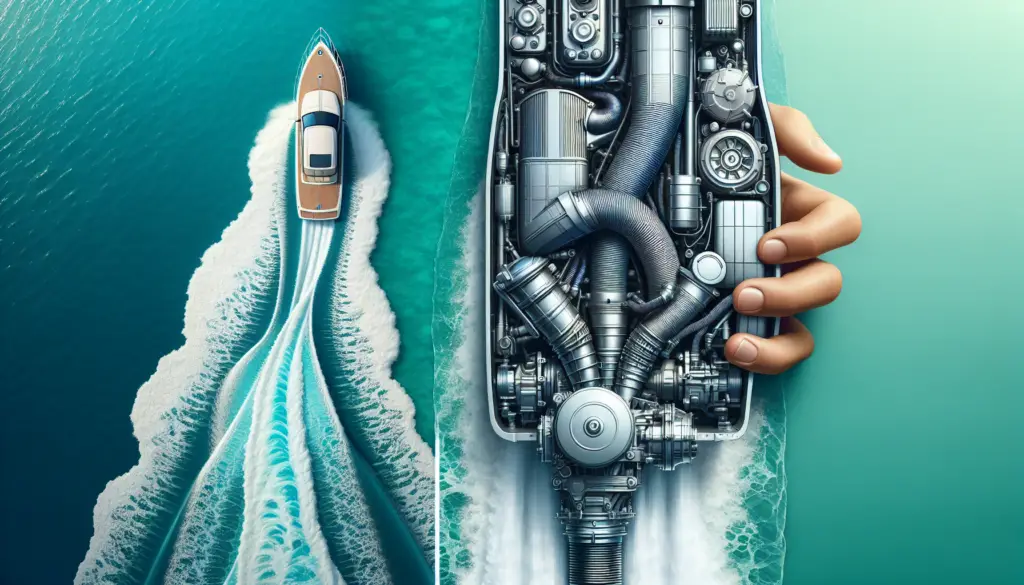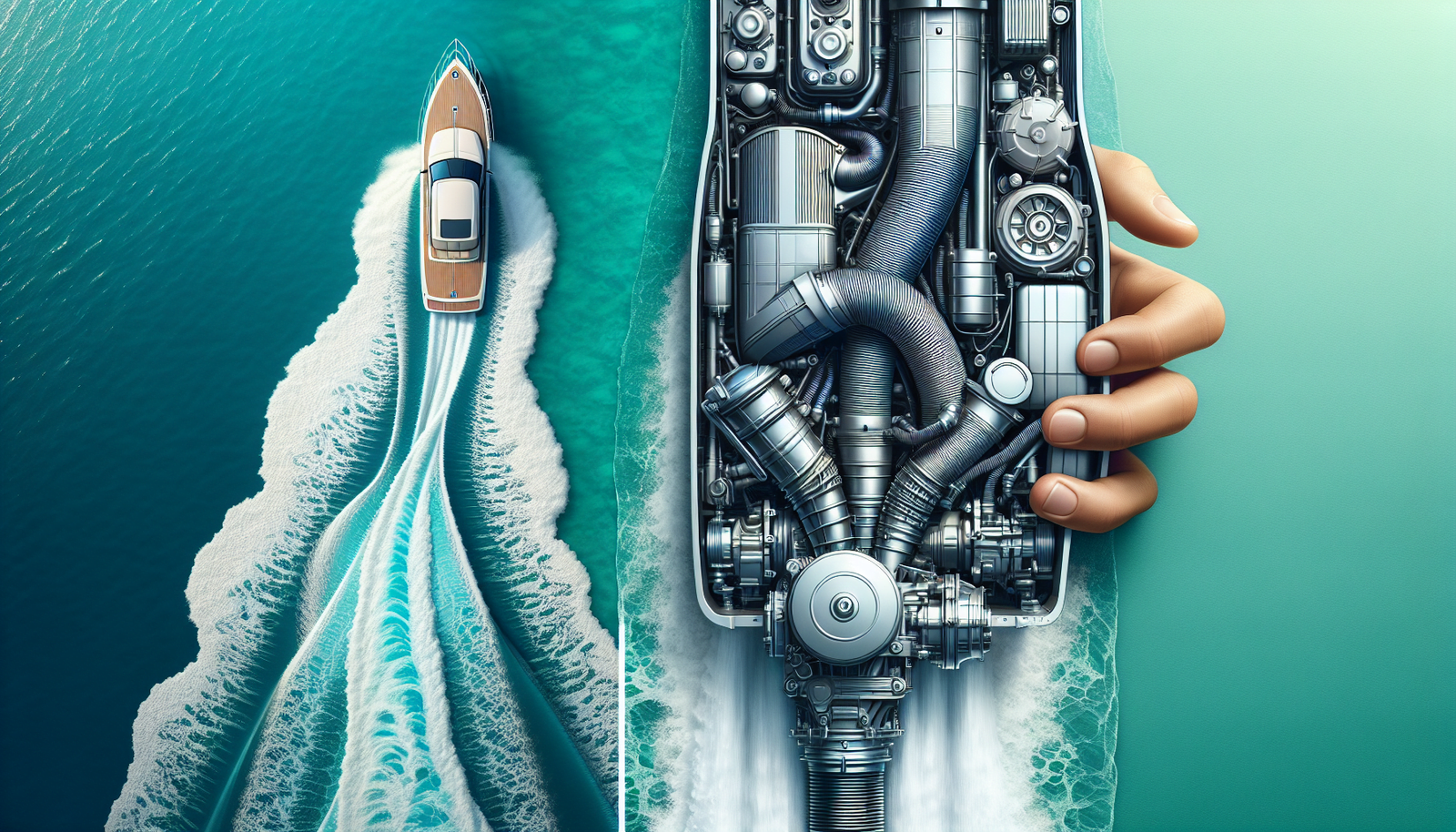Imagine this: You’re out on the open water, the sun reflecting off the waves, enjoying your day on your boat. Then, you glance at your fuel gauge and realize you’re burning through fuel at an astonishing rate. But worry not, because there are techniques to help you sail more efficiently and reduce your boat’s fuel consumption. This article will outline several practical tips to optimize your fuel usage and make sure your boating adventures don’t break the bank. Let’s work together to guide your boat to more fuel-efficient shores.

Understanding Factors Affecting Boat Fuel Consumption
When it comes to managing and reducing boat fuel consumption, there are several factors that you need to consider. Understanding these will provide a clearer picture of why your boat might be using more fuel than necessary, and what you can do to make your boating journeys more efficient.
Impact of Boat Load
The first factor to consider is the load on your boat. This includes not just the cargo, but also the number of passengers onboard. The heavier the load, the more fuel the boat needs to move. Just like a car, a boat carrying a lighter load will consume less fuel compared to one carrying a heavy load.
Effects of Weather Conditions
Next, think about the weather. Weather conditions significantly affect boat fuel consumption. For example, sailing against the wind requires more energy, which increases fuel consumption. Similarly, rough seas require your boat to work harder, which means it will use more fuel.
Impacts of Water Currents
Water currents also play a critical role in the amount of fuel your boat consumes. If you’re navigating with the current, you’ll use less fuel as you’re going with the flow. However, going against the current will require more effort and therefore more fuel.
Influence of Boat Speed
Finally, the speed at which you operate your boat greatly influences fuel consumption. Just as driving a car at high speed will burn fuel more quickly, the same applies to a boat. Maintaining a steady and optimal speed will result in better fuel efficiency.
Maintenance Strategies to Reduce Fuel Consumption
Maintaining your boat regularly and properly is an efficient way to reduce fuel consumption.
Scheduled Boat maintenance
Just as you wouldn’t ignore the service light on your car’s dashboard, you shouldn’t ignore scheduled boat maintenance. Regular maintenance such as changing the engine oil or replacing worn-out parts can significantly affect how much fuel your boat consumes.
Engine Cleaning and Maintenance
Regular engine cleaning and maintenance is crucial for maintaining fuel efficiency. A dirty engine has to work harder and will, therefore, use more fuel. Regular engine checks will help you identify potential problems before they become major issues.
Removing Unnecessary Weight
Just as we talked about how the load impacts fuel consumption, removing unnecessary weight from the boat will make it lighter and therefore more fuel-efficient. Every little bit helps so look for any unnecessary items that you can offload.
Ensuring Proper Alignment of Propeller
A properly aligned propeller reduces drag, allowing your boat to move through the water more efficiently, resulting in less fuel consumption. Therefore, regularly checking the alignment of your propeller is essential.
Checking Fuel System Regularly
A faulty fuel system can lead to higher fuel consumption. Therefore, performing regular checks on your fuel system, including the tank, lines, and connections, can help you spot leaks or damage early, preventing waste and saving you money.
Improving Fuel Efficiency through Boat Operations
How you operate your boat can also affect the amount of fuel it uses.
Operating the Boat at Optimal Speed
Operating the boat at optimal speed can significantly improve fuel efficiency. Each boat has a different optimal speed, check your boat’s manual or consult a professional for advice.
Avoiding Rapid Acceleration and Deceleration
Frequent accelerations and decelerations can increase fuel consumption. Try to maintain a constant speed where possible, and decelerate and accelerate slowly.
Using Trim Tabs Effectively
Trim tabs can help to adjust the boat’s balance and reduce drag, which can improve fuel efficiency. Learn how to use them effectively to save fuel.
Reducing Idle Time while Docks
Idling at the docks can waste a significant amount of fuel over time. Minimize idle time by preparing everything you need before you set out, and switch off the engine as soon as you dock.
How To Choose The Right Fuel For Your Boat
The type of fuel you use can also have a significant impact on your boat’s fuel efficiency.
Understanding Different Types of Boat Fuel
There are several types of boat fuel available, each with its own benefits and drawbacks. Some fuels burn cleaner than others, which can make your boat more fuel-efficient.
Determining Best Fuel for Your Boat Type
Different boat types may require different types of fuel. Research your boat model and consult with a professional to learn about the best fuel for your boat.
Benefits of Premium Quality Fuel
Using premium quality fuel can enhance the performance and fuel efficiency of your boat. While it may be slightly more expensive, it can save you money in the long term by reducing fuel consumption and engine wear.
Avoiding Fuel with Ethanol Content
Ethanol can cause various problems, including reduced fuel efficiency and possible damage to your engine. It is best to avoid fuels with high levels of ethanol.

Applying Advanced Boat Navigation Techniques
Navigating your boat effectively can also help to reduce fuel consumption.
Implementing Optimal Route Selection
By planning your route in advance and using navigation aids, you can avoid unnecessary detours and travel the most fuel-efficient route.
Monitoring Weather Forecast
Checking the weather forecast helps you avoid rough conditions that may increase fuel consumption.
Using Tide and Current Information
By understanding and using tide and current information, you can take advantage of nature’s forces and reduce your fuel usage.
Applying the ‘Slow Steaming’ Methodology
This big-ship technique, involving traveling at a slower speed, can also be used for smaller boats to save fuel.
Implementing Energy Efficient Boat Design
Implementing an energy-efficient design can make your boat more fuel-efficient.
Understanding Hydrodynamic Drag Impact
The shape and surface of your boat impacts how smoothly it moves through the water. Understanding this can guide you in making adjustments that will reduce hydrodynamic drag and save fuel.
Applying Boat Hull Shape Adjustments
The shape of your boat’s hull directly impacts its efficiency. A well-designed hull will cut through the water more effectively, reducing resistance and thereby saving fuel.
Installing Energy Efficient Boat Equipment
Energy-efficient equipment such as LED lighting and high-efficiency appliances can reduce the overall demand on your boat’s power system, in turn, reducing fuel consumption.
Considering Lighter Material for Boat Building
Lighter materials reduce the overall weight of the boat, resulting in less resistance in the water and lower fuel consumption.
Understanding Role of Boat Driver Behaviour
The behaviour of the boat driver can also significantly impact fuel consumption.
Practising Smooth Sailing Techniques
Smooth sailing, avoiding unnecessary steering actions and maintaining a steady speed, can significantly reduce fuel consumption.
Adapting to Environmental Conditions
Changes in environmental conditions such as wind direction and strength, waves, and currents should be considered and adapted to in order to save fuel.
Avoiding High Speeds Over Extended Periods
Running your boat at high speeds increases fuel consumption and can lead to rapid wear and tear on your engine. By avoiding high speeds over extended periods, you can save fuel and extend the lifespan of your engine.
Encouraging Fuel Saving Practices among Crew
If you have crew members, encourage them to adopt fuel-saving practices such as minimizing energy use and reducing waste. Every little bit helps in reducing fuel consumption.
Benefits of Installing a Boat Fuel Management System
Installing a boat fuel management system can be a great way to improve fuel efficiency and save money.
Overview of Fuel Management Systems
A fuel management system monitors fuel consumption, helping you keep track of how much fuel you’re using and highlight areas where you could be more efficient.
How Fuel Management Systems Improve Fuel Efficiency
By providing real-time data on fuel use, these systems allow for immediate adjustments to be made, improving fuel efficiency.
Choosing the Right Fuel Management System
There are various types of fuel management systems available, with different features. Choose one that best suits your needs and budget, and you’ll be well on your way to reduced fuel consumption.
Effect of Boat Size on Fuel Consumption
The size of your boat can greatly impact its fuel consumption.
Comparing Fuel Efficiency in Different Boat Sizes
In general, larger boats tend to consume more fuel than smaller boats. However, there are many variables at play in this equation, including the hull design, engine type and boat load.
Making the Most out of Your Boat Size
Regardless of your boat’s size, there are ways to maximize its fuel efficiency. This includes keeping it well-maintained, operating it correctly and making smart navigational choices.
Considerations for Upgrading Boat Size with Respect to Fuel Efficiency
If you’re planning to upgrade to a larger boat, consider the impact on fuel efficiency. The added luxury and space often come with increased fuel consumption.
Eco-Friendly Practices to Reduce Boat Fuel Consumption
Eco-friendly practices are not just good for the environment, they can also help reduce your boat’s fuel consumption.
Promoting Sustainable Boating Practices
Sustainable boating practices can be anything from minimizing your waste to making the most of natural currents. These practices not only preserve the marine environment but also reduce your boat’s fuel consumption.
Understanding How Less Fuel Consumption Benefits the Environment
Lower fuel consumption translates to lower emissions, which is great for the health of our planet. Less pollution means cleaner air and water, and a healthier marine ecosystem.
Exploring Renewable Energy Options for Boating
Renewable energy, such as solar and wind power, can be excellent alternatives to traditional boat fuel. They reduce emissions and can also lower your fuel costs in the long run. Recently, there have been some major advancements in this field, making renewable energy options for boating more accessible and effective than ever before.


[…] running your boat’s engine at a low speed (idle) for extended periods can create unburned fuel in the exhaust system, over-cool the engine, and increase wear. […]
[…] Signs of power loss in a boat engine can include slow acceleration, inconsistent speeds despite throttle input, excessive smoke from the exhaust, or even a rise in fuel consumption. […]
[…] hull materials have many other benefits. They can often be lighter than conventional materials, reducing the fuel needed to power your boat. They can also be more durable, requiring less maintenance and reducing the need […]